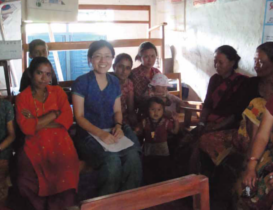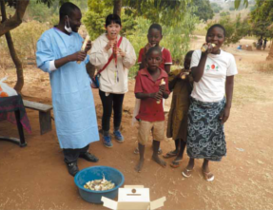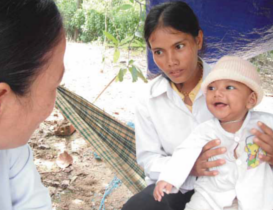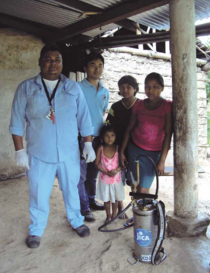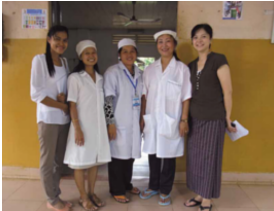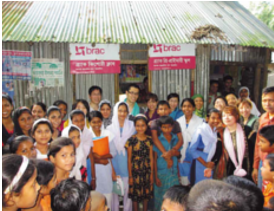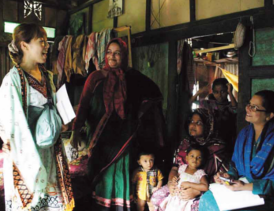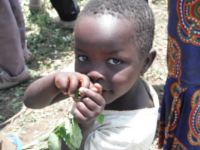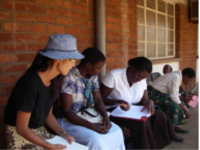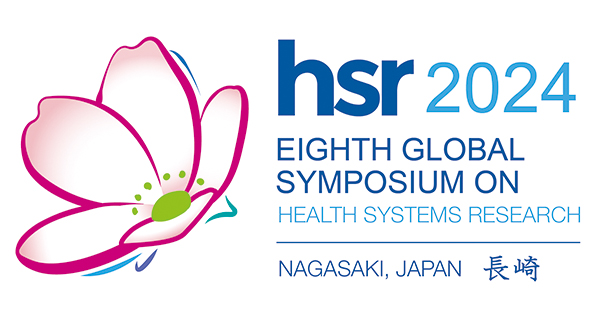Naomi Amaike
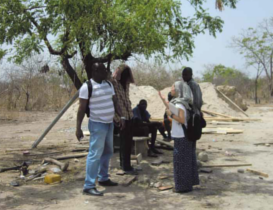 Isn’t it because you know the fundamentals and basics that you can make choices, gather courage to jump in or throw something away, and then gradually shift to creation? I had worked as a nurse and provided care to individuals,striving for mutual growth until I enrolled in the graduate school. After that, I joined the JOCV. Through the involvement in nursing education and community cooperation in the Republic of Mozambique, I realized the importance of public health and decided to go to school, believing that an approach based on wisdom for groups is necessary. Once in graduate school, I academically and systematically gained an understanding of various fields. At the same time, I was able to study further by gaining a variety of experience in the fields of maternal and child health, as well as cultural anthropology, particularly through community-based projects and child group studies in the rural areas of the Republic of Kenya. I had opportunities to meet exciting people including professors and MPH students, and expand my views. These experiences have become great assets to me. Being able to learn the basic notion that “the language, information, activities, etc. can connect people and provide options” while honing on-site capabilities and practical skills, as well as having time for self reflection, turned out to be an extremely valuable experience.Today, after graduating the school, I am working as I was drawn to the human-centric approach that focuses on the role of connecting people to enable everyone to accept and internalize “health” and make choices based on their own will. With everyone’s support, I have gradually come to believe that mutual awareness and shared sentiments expressed through communication based on sufficient foundation and observation can lead to human development and actions. (Public interest incorporated foundation : JOICFP-Ghana)
Isn’t it because you know the fundamentals and basics that you can make choices, gather courage to jump in or throw something away, and then gradually shift to creation? I had worked as a nurse and provided care to individuals,striving for mutual growth until I enrolled in the graduate school. After that, I joined the JOCV. Through the involvement in nursing education and community cooperation in the Republic of Mozambique, I realized the importance of public health and decided to go to school, believing that an approach based on wisdom for groups is necessary. Once in graduate school, I academically and systematically gained an understanding of various fields. At the same time, I was able to study further by gaining a variety of experience in the fields of maternal and child health, as well as cultural anthropology, particularly through community-based projects and child group studies in the rural areas of the Republic of Kenya. I had opportunities to meet exciting people including professors and MPH students, and expand my views. These experiences have become great assets to me. Being able to learn the basic notion that “the language, information, activities, etc. can connect people and provide options” while honing on-site capabilities and practical skills, as well as having time for self reflection, turned out to be an extremely valuable experience.Today, after graduating the school, I am working as I was drawn to the human-centric approach that focuses on the role of connecting people to enable everyone to accept and internalize “health” and make choices based on their own will. With everyone’s support, I have gradually come to believe that mutual awareness and shared sentiments expressed through communication based on sufficient foundation and observation can lead to human development and actions. (Public interest incorporated foundation : JOICFP-Ghana)

